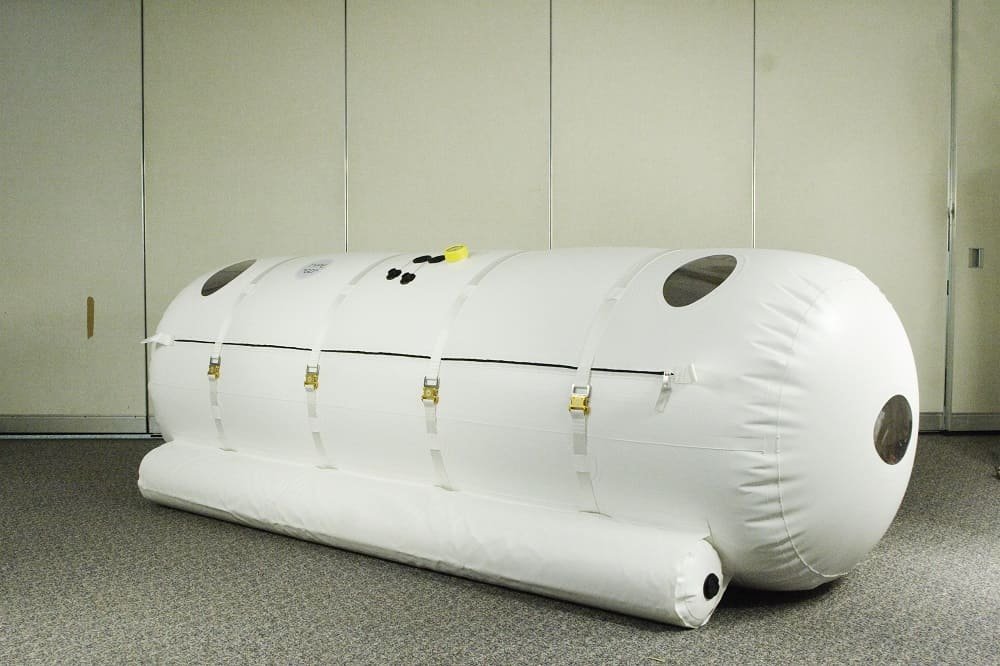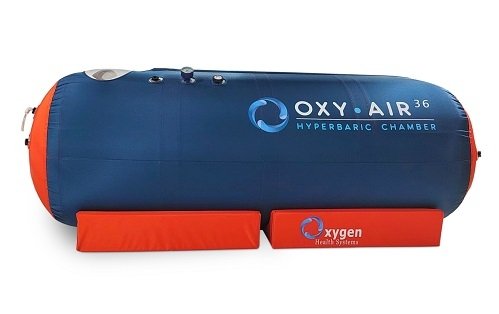Is hyperbaric oxygen therapy safe? 9 potential side effects

In this article we are answering the question “Is hyperbaric oxygen therapy safe” by focusing on the potential hyperbaric oxygen therapy side effects.
There are many claims being made about the benefits of hyperbaric oxygen therapy (HBOT), but is it really safe?
Well, in this blog post, we’ll take a closer look at the potential risks of HBOT and what you need to know before considering this type of treatment.
What exactly is hyperbaric Oxygen therapy?
Hyperbaric oxygen therapy, or HBOT, is a medical treatment that exposes the body to high levels of oxygen in an enclosed container, generally an airtight room or a hyperbaric chamber for home use.

Medical experts believe that HBOT may be helpful in the healing process after an injury, for telomere elongation, or as a means of intensifying a medical treatment, such as cancer treatment, when administered in conjunction with other therapies.
In general Hyperbaric Oxygen Therapy is proven to offer an array of benefits to those who undertake medical treatments.
Make sure to read this article that explains in more detail what hyperbaric oxygen therapy is and how it works. You may want to read this article as well that talks about the history of Hyperbaric Oxygen Treatment.
Is hyperbaric oxygen therapy safe? Can Hyperbaric Oxygen Therapy (HBOT) be harmful?
Hyperbaric oxygen therapy is much prescribed cure-all for people with other types of illnesses. There is a lot of talk about the benefits of HBOT and no causalities have been documented.
However, there are cases of serious injury, even when conducted by highly qualified medical practitioners.
The primary complications are compartment syndrome and a bolus of reflux.
If proper precautions are made and hyperbaric chambers are inspected, problems can be avoided.
Possible Hyperbaric Chamber Side Effects
Although hyperbaric oxygen therapy is generally considered safe, there are a few potential side effects. These include ear pain, sinus pain, and temporary vision changes. More serious side effects, such as lung collapse, are rare.
Here’s a list with possible side effects one may experience when using a hyperbaric oxygen therapy treatment.
Irritation of the eyes
A small number of patients receiving hyperbaric oxygen therapy may experience temporary changes in eyesight. [1]
Studies have shown that any altered vision is usually of short duration and will return to pre-treatment status within six to eight weeks after the end of treatment.
Barotrauma of the ear
Barotrauma is an injury caused by increased pressure. The most common type of barotrauma is ear barotrauma, which occurs when the pressure in the middle ear is different from the pressure outside the ear. [2]
The middle ear is an air-filled cavity behind the ear drum that connects to the throat through a slit-like passage called the eustachian tube.
Sinus Squeeze
One potential side-effect of hyperbaric oxygen therapy (HBOT) is increased pressure on the sinuses, commonly referred to as sinus squeeze. This condition is caused by an inability to equalize pressure in the chamber and is most often felt by patients in the frontal sinuses.
Hypoglycemia
Your therapist may advise you to have sugar drinks before HBOT sessions to maintain optimal blood sugar levels during the treatment. If you have low blood sugar, please inform your therapist or avoid HBOT altogether.
Oxygen Poisoning
Some people may feel discomfort while in a hyperbaric chamber due to the high pressure. You may experience ear pain or a popping feeling in your ears. To prevent oxygen poisoning, you may need to take short breaks during the therapy and breathe normal air. This can help prevent tissues in your body from taking in too much oxygen.
Pulmonary Hyperexpansion
This side effect is very rare when using Hyperbaric Oxygen Therapy (HBOT). If you hold your breath during decompression, it could cause the air in your lungs to expand and damage the lung tissue. [3]
If there is an unexpected rapid decompression, it is critical that you exhale immediately.
Fatigue
Your blood oxygenates the body, infusing injured tissues with the oxygen they need to start healing. When a session is done, you may feel lightheaded and tired. Usually, these side effects go away after a while.
Dental Barotrauma
Dental pain can result from a change in atmospheric pressure. [4]
This phenomenon, known as barotrauma, is most commonly observed in air crews during World War II and subsequently reported in divers.
In compressed air environments, such as those found in dental offices, barotrauma can cause expansion of air bubbles trapped under a root filling or against dentin, which can activate nociceptors.
Claustrophobia
Claustrophobia is the fear of small spaces with no escape. It may be caused by things such as elevators, tunnels, small rooms, basements or tight clothing.
Symptoms can include sweating, palpitations, hyperventilation, light-headedness, dizziness, and chest tightness. They may also lead to confusion and disorientation.
Many experts believe that claustrophobia is learned through classical conditioning during childhood; becoming conditioned to be afraid while being in small spaces.
Other researchers suggest that the size of a person’s amygdala may be related to claustrophobia. [5]
Those who are prone to panic attacks are typically found to have smaller amygdalae than those without such a condition.
Other Side Effects
HBOT may help the body to cleanse digestive flora. Some people may feel discomfort within 1-36 hours after the session. This can include flu-like symptoms, loss of appetite, stomach-ache, constipation, diarrhea, headache, and behavioral issues. This is a natural process, and continuing the sessions may help to achieve a positive result more quickly.
Final Words
By know you should have understood the possible hyperbaric oxygen therapy side effect and you question “Is hyperbaric oxygen therapy safe?” answered.
HBOT is a promising treatment for many health conditions, but it’s important to understand the potential risks before committing to a course of treatment.
If you’re considering HBOT for your own or a loved one’s condition, it’s important to discuss your options with a qualified health care professional or you may want to check our guide on how to choose a HBOT chamber for home use.
Also, if you are looking to purchase a hyperbaric oxygen chamber for home use, check our recommendations.
